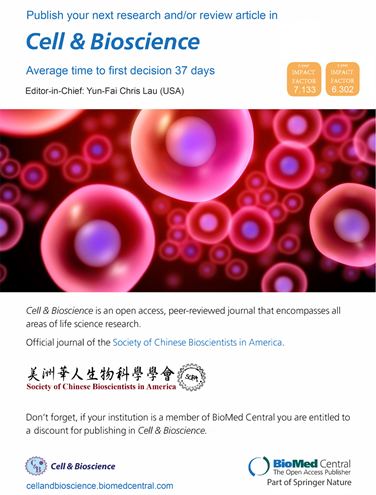髓系细胞自噬功能受损会通过 IL-1β/CXCL2/ 中性粒细胞轴加重牛皮癣样皮肤炎症
IF 6.1
2区 生物学
Q1 BIOCHEMISTRY & MOLECULAR BIOLOGY
引用次数: 0
摘要
银屑病是一种炎症性皮肤病,其特点是表皮角质细胞过度增生和大量免疫细胞浸润,导致 IL-1β、TNF-α、IL-23 和 IL-17 等细胞因子的产生。最近的研究强调,IL-1β 在诱导和激活致病性 Th17 和产生 IL-17 的 γδ T 细胞中起着关键作用,从而导致银屑病。然而,IL-1β在银屑病发病机制中失调的机制尚不清楚。自噬可调节IL-1β的产生,并对炎症性疾病有多重影响。先前的研究表明,自噬在银屑病发病机制中的作用存在争议,自噬缺陷的角质形成细胞具有促炎作用,而药物自噬促进的巨噬细胞则具有抗炎作用。因此,自噬在银屑病中的直接作用及其治疗潜力仍不清楚。我们利用髓系细胞特异性自噬相关基因 7(Atg7)缺陷小鼠,在咪喹莫特诱导的银屑病小鼠模型中测定了髓系细胞自噬缺陷对中性粒细胞增多和疾病发病机制的影响。然后,我们评估了致病机制,重点是产生 IL-1β 和 IL-17 的免疫细胞,以及小鼠模型和患者公共数据库中与银屑病相关的基因表达谱。此外,还评估了在这种情况下阻断 IL-1β 的治疗潜力。我们发现,髓系细胞中自噬功能的缺乏会加剧银屑病小鼠的中性粒细胞炎症和疾病发病机制。这种自噬依赖效应与髓系细胞(尤其是巨噬细胞)产生的IL-1β显著增加、Cxcl2表达以及包括γδT细胞在内的产生IL-17 A的T细胞有关。为此,全身使用 IL-1 受体阻断抗体或局部使用糖精(一种抑制促 IL-1β 表达的双糖)治疗后,与自噬缺陷有关的中性粒细胞增多和银屑病皮肤炎症得到了缓解。银屑病患者银屑病皮损中自噬相关基因的失调及其与 Th17 细胞因子的相关性支持了这一发现的病理生理学意义。我们的研究结果表明,髓系细胞(尤其是巨噬细胞)的自噬功能障碍以及IL-1β失调在中性粒细胞炎症和银屑病发病机制中起着因果作用。本文章由计算机程序翻译,如有差异,请以英文原文为准。
Impaired autophagy in myeloid cells aggravates psoriasis-like skin inflammation through the IL-1β/CXCL2/neutrophil axis
Psoriasis is an inflammatory skin disease characterized by the hyperproliferative epidermal keratinocytes and significant immune cells infiltration, leading to cytokines production such as IL-1β, TNF-α, IL-23, and IL-17. Recent study highlights the critical role of IL-1β in the induction and activation of pathogenic Th17 and IL-17-producing γδ T cells, contributing to psoriasis. However, the mechanism underlying IL-1β dysregulation in psoriasis pathogenesis is unclear. Autophagy regulates IL-1β production and has a pleiotropic effect on inflammatory disorders. Previous studies showed controversial role of autophagy in psoriasis pathogenesis, either pro-inflammatory in autophagy-deficient keratinocyte or anti-inflammatory in pharmacologically autophagy-promoting macrophages. Thus, the direct role of autophagy and its therapeutic potential in psoriasis remains unclear. We used myeloid cell-specific autophagy-related gene 7 (Atg7)-deficient mice and determined the effect of autophagy deficiency in myeloid cells on neutrophilia and disease pathogenesis in an imiquimod-induced psoriasis mouse model. We then assessed the pathogenic mechanism focusing on immune cells producing IL-1β and IL-17 along with gene expression profiles associated with psoriasis in mouse model and public database on patients. Moreover, therapeutic potential of IL-1β blocking in such context was assessed. We found that autophagy deficiency in myeloid cells exacerbated neutrophilic inflammation and disease pathogenesis in mice with psoriasis. This autophagy-dependent effect was associated with a significant increase in IL-1β production from myeloid cells, particularly macrophages, Cxcl2 expression, and IL-17 A producing T cells including γδ T cells. Supporting this, treatment with systemic IL-1 receptor blocking antibody or topical saccharin, a disaccharide suppressing pro-IL-1β expression, led to the alleviation of neutrophilia and psoriatic skin inflammation linked to autophagy deficiency. The pathophysiological relevance of this finding was supported by dysregulation of autophagy-related genes and their correlation with Th17 cytokines in psoriatic skin lesion from patients with psoriasis. Our results suggest that autophagy dysfunction in myeloid cells, especially macrophages, along with IL-1β dysregulation has a causal role in neutrophilic inflammation and psoriasis pathogenesis.
求助全文
通过发布文献求助,成功后即可免费获取论文全文。
去求助
来源期刊

Cell and Bioscience
BIOCHEMISTRY & MOLECULAR BIOLOGY-
CiteScore
10.70
自引率
0.00%
发文量
187
审稿时长
>12 weeks
期刊介绍:
Cell and Bioscience, the official journal of the Society of Chinese Bioscientists in America, is an open access, peer-reviewed journal that encompasses all areas of life science research.
 求助内容:
求助内容: 应助结果提醒方式:
应助结果提醒方式:


